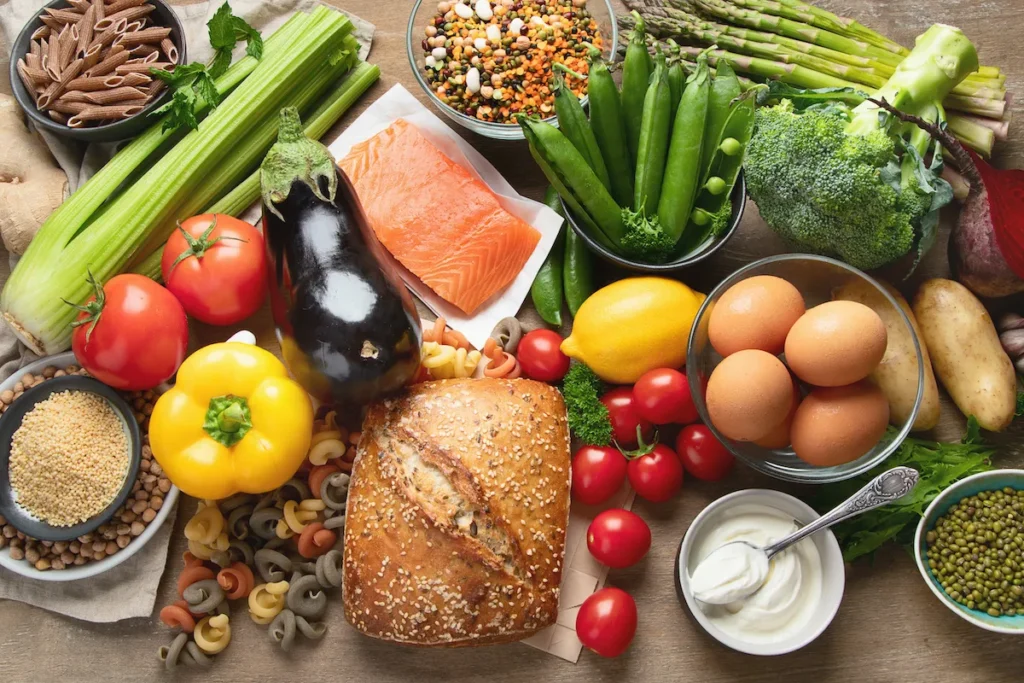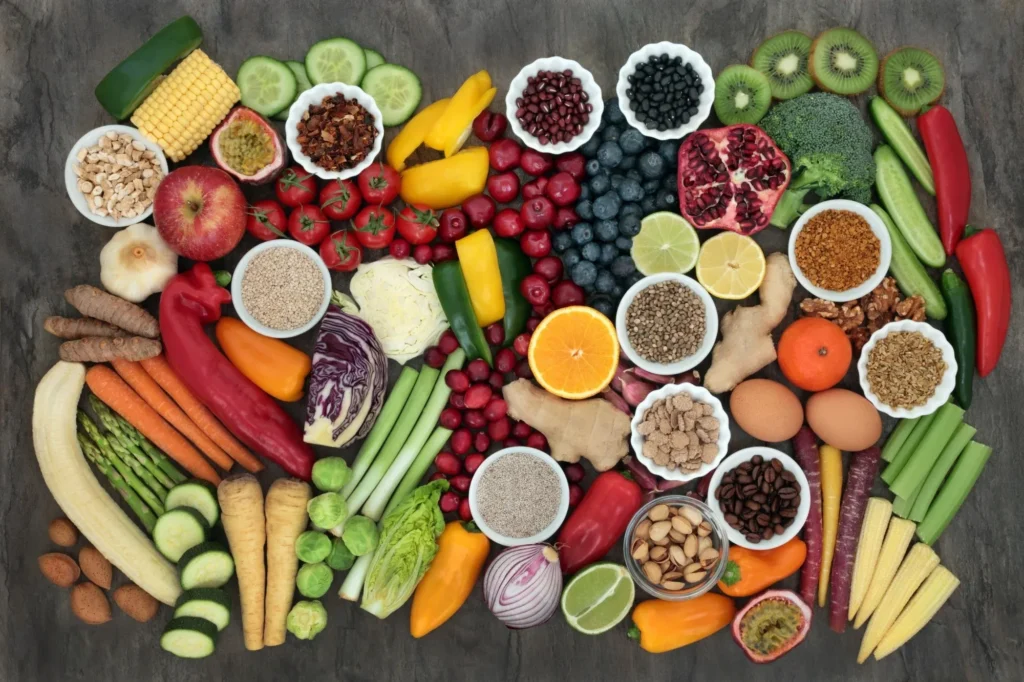How do you follow the Mediterranean diet? This simple Mediterranean diet meal plan with expert tips and easy recipes is the best place to get started! Use it as a blueprint to plan your own meals and enjoy big Mediterranean flavors!
Several years in a row, US News and World Report and other expert organizations have ranked the Mediterranean Diet as the best diet in the world. This balanced, heart-healthy diet emphasizes vegetables, fruits, whole grains, legumes, lean proteins (especially fish), and healthy fats such as extra virgin olive oil and nuts.
As an individual with authentic Mediterranean ancestry who was raised adhering to the Mediterranean way of life, I am deeply enthusiastic about imparting knowledge and assisting others in their exploration of this delectable culinary tradition.
Kindly be advised that the information presented on The Mediterranean Dish is for your overall awareness and understanding. It does not intend to provide medical advice or diagnosis. It is advisable to seek the advice of a healthcare professional prior to implementing a novel eating regimen or diet. Never postpone obtaining treatment or disregard professional advice on the basis of what you have read.
First, let’s ditch the word “diet”
Although the Mediterranean diet is predominantly plant-based, it does not involve significant calorie restriction, deprivation, or counting of calories, as are found in other dietary plans. Adhering to the Mediterranean diet entails satiety, inclusivity, and the moderation of one’s preferred indulgences.
It is not a “diet” in the strictest sense, but rather a balanced eating pattern that can be modified and implemented on a daily basis to promote bodily health and promote healthier decision-making.
In order to assist you in commencing the Mediterranean diet, I have compiled a meal plan encompassing suggestions and recipes. Leverage my meal plan as a guide to facilitate the selection of sustainable foods while enhancing the flavor profile of your dining experience. And when you’re ready for more, be sure to peruse my compilation of the finest recipes that adhere to the Mediterranean diet.
It is imperative to consult your healthcare provider prior to attempting a new diet or eating regimen.
What do you eat on the Mediterranean diet?
Here are some fundamentals of what you should consume in accordance with the Mediterranean diet:

Eat MORE plant-based foods (daily) – Vegetables, whole grains, beans, legumes, herbs, and good extra virgin olive oil. Aim to eat these daily.
Eat SOME seafood and omega-3-rich foods (2 to 3 times per week) – Fish (preferably fatty fish like salmon and mackerel, but you can use white fish varieties as well), nuts, and seeds. If it works for you, try to eat these 2 to 3 times a week.
Eat SOME poultry, eggs, and dairy (1 to 2 times per week).
Eat LESS red meats and sweets. These should be enjoyed sparingly. And it’s important to remember that it is not just about the frequency but also the amount. When the craving hits for those baked meatballs or rack of lamb, we eat them, but the plate is still a lot more vegetable-focused. And yes, I always bake baklava and loukoumades for the holidays.
Have a glass of red wine once in a while.
Avoid highly processed foods.
The Mediterranean pantry

Provisioning meals commences with the larder. The Mediterranean way of life incorporates straightforward components that are readily obtainable at the majority of supermarkets; in fact, you may already possess some of them. I have compiled an exhaustive purchasing list for the Mediterranean diet. However, in addition to ensuring that your refrigerator is stocked with vegetables and verdant greens, and that you stock your freezer with high-quality wild-caught fish and other seafood, I would like to list a few pantry items that are indispensable for Mediterranean cooking:
Good quality extra virgin olive oil (My favorite Mediterranean olive oils are available in our online shop)
Legumes such as beans, chickpeas, and lentils (both dry and canned)
Pastas and grains including rice (brown rice), quinoa, farro, barley, bulgur, and couscous.
Nuts, seeds, and dried fruits such as walnuts, almonds, hazelnuts, pistachios, sesame seeds. Nuts pack some good flavor and can add crunch and nutrition to your meals. They’re also satisfying snacks! I keep my nuts and seeds in a tightly container in the freezer, they will last for a few months that way. For dried fruit, I often keep dates, raisins, and dried apricots.
Dried herbs and spices. One of the joys of eating the Mediterranean way is that you can add layers of flavor using all-natural herbs and spices that elevate your meals while adding nutrition as well. I use all-natural or organic spices, you can find them all here in our online shop.
Canned tomatoes. I use whole San Marzano tomatoes, tomato sauce, and crushed tomatoes often in Mediterranean cooking. Look for quality, low-sodium canned tomatoes.
Other: Tahini, a rich and nutty paste made by grinding toasted sesame seeds. You’ll find me using tahini in many ways from a simple sauce to drizzle on top of kebabs, to a protein-rich banana shake! All-natural honey for baking and for when we need something sweet.
My quick meal planning guide

When devising meal plans and preparing banquets, bear in mind the fundamental tenets of the Mediterranean diet. Prioritize the consumption of fresh produce, herbs, grains, legumes, and seeds; supplement with lean proteins such as poultry and fish. In general, I organize Mediterranean banquets for my family as follows:
Meatless dinners –2 to 3 times per week
Fish and seafood dinners- 2 to 3 times per week
Chicken or lean meat dinner –1 to 2 time per week
Red meat- On occasion (and no more than 1 time per week)
Leftovers- When possible to avoid waste (at least 1 time per week)
meal planning guide chart
Read Also:- Easy Anti-Inflammatory Lunches for the Mediterranean Diet
